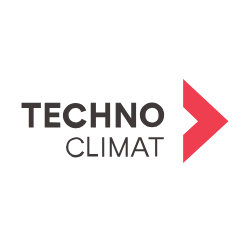
Open
Tax credit for ethanol production in Quebec
Last Update: October 27, 2025
QC, Canada
Tax credit supporting eligible ethanol production activities in Quebec
Tax Credits
At a glance
Funding available
Financing goals
Reduce the ecological footprint
Eligible Funding
- No Condition
Timeline
- Unspecified
Eligible candidates
Eligible Industries
- Manufacturing
Location
- Quebec
Legal structures
- For-profit business
Annual revenue
- All revenue ranges
Organisation size
- All organization sizes
Audience
- All groups
Overview
The Tax Credit for Ethanol Production in Quebec provides eligible corporations with a refundable tax credit for qualifying ethanol produced in Quebec before April 1, 2023; the program is intended to encourage and support local ethanol production activities. The maximum funding amount is not specified in the available information.
Activities funded
- Production of ethanol at a facility located in Quebec before April 1, 2023.
Examples of admissible projects:
$ 480,000
Expand delivery fleet with refrigerated electric vehicles
$ 80,000
Upgrade bakery equipment to increase gluten-free bread output
$ 108,000
Install rooftop solar panels to reduce community center energy use
$ 35,000
Launch a digital literacy program for seniors using tablets
$ 145,000
Launch accessible coworking space for remote workers with disabilities
$ 210,000
Develop new SaaS platform to streamline small business accounting
Eligibility
- The company must have an establishment in Quebec and operate a qualifying ethanol production business during the tax year.
- The company must not be exempt from income tax.
- The company must not be a Crown corporation or a wholly controlled subsidiary of a Crown corporation.
Who is eligible?
- Corporations operating an eligible ethanol production business in Quebec
Who is not eligible
- Companies that are exempt from tax.
- Crown corporations or subsidiaries entirely controlled by a Crown corporation.
- Companies that have submitted an initial eligibility certificate application for the deduction related to large investment project income, for activities stemming from that project.
Eligible geographic areas
- Companies with an establishment in Quebec.
How to apply
- Step 1: Enter Tax Credit Information in the Tax ReturnInclude the name of the tax credit for ethanol production in Quebec in the corporate tax return.
- Specify the tax credit code (74) and the corresponding amount on one of the lines 440p to 440y of the return.
- Step 2: Gather Required DocumentsComplete and prepare the form "Crédit d'impôt pour production d'éthanol au Québec" (CO-1029.8.36.OL).
- Prepare a copy of the report detailing, for each month of the fiscal year, the eligible ethanol production carried out in Quebec.
- If applicable, complete the form "Entente concernant le crédit d'impôt pour production d'éthanol au Québec" (CO-1029.8.36.OM).
- Prepare and retain, but do not submit unless requested: a copy of the transport manifest issued to the purchaser if delivery is not made by the eligible company; evidence that the tax credit received for previous fiscal years is included in this year’s business or property income, if applicable.
- Step 3: Submit Application DocumentsAttach all required documents to the company’s tax return.
- If unable to include documents with the tax return, submit them separately no later than twelve months after the filing deadline for that fiscal year.
- You can submit the income tax return and the required application documents electronically through authorized software, in which case paper copies are not required.
- If submitting by mail, ensure each document includes the company name, identification numbers, file number, and the fiscal year-end date.
- It is recommended to send all documents in a single package to expedite processing.
Additional information
- Applicants cannot claim both the ethanol production tax credit and the investment tax credit or investment and innovation tax credit for assets used in ethanol production.
- An initial eligibility certificate request for a large investment project deduction disqualifies activities resulting from that project from this tax credit.
- All relevant documents should preferably be submitted in a single package to expedite processing.
- Documents may be submitted electronically via approved software; paper documents are not required if this method is used.
Apply to this program
Frequently Asked Questions about the Tax credit for ethanol production in Quebec Program
Here are answers to the most common questions about the Tax credit for ethanol production in Quebec. This section explains what the program is, how much funding is available, eligibility requirements, application deadlines, and other important details to help you determine if this grant is right for your business.
What is the Tax credit for ethanol production in Quebec?
Who is eligible for the Tax credit for ethanol production in Quebec program?
What expenses are eligible under Tax credit for ethanol production in Quebec?
Where is the Tax credit for ethanol production in Quebec available?
Is the Tax credit for ethanol production in Quebec a grant, loan, or tax credit?
Who are the financial supporters of the Tax credit for ethanol production in Quebec?
Apply to this program
More programs like this

Grant and FundingOpen
ÉcoPerformance — Recommissioning of building mechanical systems
Gouvernement du QuébecFunding to optimize the operation of building mechanical systems

Grant and FundingClosed
GHG Challenge Program - Industry
Environnement Québec (MELCC)Supports major industrial projects reducing greenhouse gas emissions

Grant and FundingOpen
Technoclimat
Environnement Québec (MELCC)Financial assistance for the demonstration of new technologies in Quebec

Partnering and CollaborationGrant and FundingExpert AdviceSuspended
Financial support to assess your energy use Hydro Quebec
Hydro-QuébecUp to $50,000 for energy performance analysis and optimization

Grant and FundingOpen
Enbridge Gas Quebec — Custom-made project
Enbridge Gas QuebecSupports energy-saving projects using natural gas in buildings

Tax CreditsOpen
Additional deduction for transportation costs for manufacturing SMEs
Revenu QuébecTax deduction for manufacturing SMEs' transportation costs in remote areas

Grant and FundingClosed
Aid measure for the decarbonization of Quebec's industrial sector (MADI)
Environnement Québec (MELCC)Supports Quebec industrial decarbonization projects for reduced GHG emissions

Grant and FundingExpert AdviceOpen
Grant for a circular economy assessment
City of Montreal (MTL)Supports businesses in Montreal adopting circular economy practices

Grant and FundingExpert AdviceOpen
Productivity and Sustainable Innovation Fund – Stream 1: Company consultations/micro-diagnosis and selection assistance
NexDev | Haut-Richelieu Economic DevelopmentFinancial support for productivity and innovation in local industries

Grant and FundingExpert AdviceOpen
Productivity and Sustainable Innovation Fund – Component 2: Feasibility study - audit towards a 4.0 transition
NexDev | Haut-Richelieu Economic DevelopmentFinancial support for industrial digital transformation and productivity improvement
Sign up to our platform to access the Tax credit for ethanol production in Quebec information sheet for free
Get access to 4,000+ programs, practical guides, personalized alerts, and an AI assistant to support your grant applications.